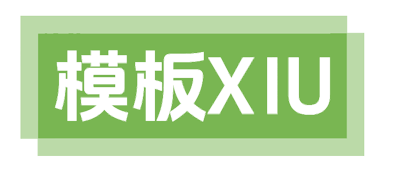关于自学毕业生的自我鉴定,精选5篇精选范文,字数为800字。自学是提高自身综合素质、增长修养的重要途径之一。通过自学,可以不断拓宽自己的知识面,提高自身的能力水平,为更好地履行自己的职责做好准备。在进行自学时,选择合适的书目是非常重要的,将介绍一些适合自学的书目。
自学毕业生的自我鉴定(精选范文):1
自学是提高自身综合素质、增长修养的重要途径之一。通过自学,可以不断拓宽自己的知识面,提高自身的能力水平,为更好地履行自己的职责做好准备。在进行自学时,选择合适的书目是非常重要的,将介绍一些适合自学的书目。
1.《新时代中国特色社会主义思想学习纲要》
这本书是学习新时代中国特色社会主义思想的重要参考书。通过学习这本书,可以更好地理解和把握新时代中国特色社会主义思想的核心观点和基本要求,深刻领会中国党历经百年的奋斗历程和党的光辉理论成果。
2.《中国党》
这本书是中国党必读的基本法规。是党的根本,是全党必须遵循的行为准则。通过学习,可以更好地了解和掌握党的基本任务、组织原则、义务等内容,树立正确的观念,增强对党的忠诚和对党的事业的信仰。
3.《选集》
作为主义理论的经典著作,这本书是理解和掌握主义基本原理、方的重要工具。通过学习选集,可以深入了解历史唯物主义、辩证唯物主义等重要观点,提高自己的思想境界和理论水平,更好地运用主义的思想工具分析和解决实际问题。
4.《中国近现代史纲要》
这本书是了解中国近现代史发展脉络的重要读物。应当具备扎实的历史素养,深入了解中国党的历史使命和党的奋斗历程,从而更好地领会中国党是如何从小到大,从弱到强,领导中国取得、建设和改革开放伟大胜利的。
5.《谈治国理政》
这本书是学习治国理政思想的权威指导。通过学习这本书,可以更好地把握提出的“四个全面”战略布局和中国特色社会主义事业总体布局,深刻理解中国特色社会主义进入新时代的重大意义。
以上五本书是自学的基础书目,在自学的过程中还可以根据自身兴趣和需要选择其他相关书籍作为拓展。重要的是,自学应当有计划、有重点、有系统,注重理论联系实际,将学习成果转化为实际行动,在实践中不断提高自己的理论水平和工作能力。
自学是一项永恒的任务,只有不断地学习,才能与时俱进,不断提高自己的思想境界和工作能力。希望广大能够重视自学,努力成为既有理论修养又有实践经验的优秀,为党和的事业作出更大的贡献!
自学毕业生的自我鉴定(精选范文):2
作为一名中国,学习党的理论知识是我们义不容辞的责任和使命。党的理论教育是我们加强思想建设、提高素养的重要途径。而在繁忙的工作学习之余,如何进行有效的自学,提高理论水平,成为了摆在我们面前的一项任务。
在进行自学时,我们可以根据个人兴趣和需要,在如下书目中选择适合自己的作为学习的材料:
1. 《新时代中国特色社会主义思想学习纲要》
作为党的理论学习的重要指导,该纲要系统概括了新时代中国特色社会主义思想的主要内容,是我们了解和掌握新时代中国特色社会主义思想的必备读物。
2. 《选集》
是我们党的主要思想家、理论家和军事家,他的著作对于我们了解中国的历史背景、党的初心和使命具有重要意义。通过学习《选集》,我们可以更好地理解主义在中国的发展和实践。
3. 《文选》
是我国改革开放和现代化建设的总设计师,他的思想对于我们认识改革开放的意义和发展道路具有重要指导作用。通过学习《文选》,我们可以更好地了解和把握中国特色社会主义事业的发展方向。
4. 《文选》
是中国党集体的核心,他提出的“”为我国经济社会发展提供了重要指导。通过学习《文选》,我们可以更好地了解和把握我国社会主义事业发展的科学思想和重要路径。
5. 《谈治国理政》
这是在党的后给全党全军开展的重要,从中我们可以深入学习治国理政的思想和实践,了解中国特色社会主义新的发展阶段和党的建设新的伟大工程。
以上书目只是一部分,还有许多经典著作如《主义的实践与理论》、《主义哲学概论》、《经济学原理》等,都是我们学习的重要参考书目。
除了书本,我们还可以通过参加培训班、听取大会讲座、观看党史纪录片等多种形式来进行自学,拓宽我们的知识面和视野。
在进行自学的过程中,我们要坚持“理论联系实际”的原则,将学习到的理论知识与党的实际工作相结合,不断提高自己的理论水平和实践能力。
总之,自学是每一名的必修课程,通过不断学习和思考,我们可以更好地践行初心使命,为实现中华民族伟大复兴的中国梦不懈奋斗。只有不断增强修养,才能成为一名优秀的,为党和事业作出更大的贡献。
自学毕业生的自我鉴定(精选范文):3
自学是一种有效的学习方法,它不仅可以帮助我们掌握新知识,提高自己的能力,还可以培养我们的自主学习能力和解决问题的能力。而写一篇自学总结,则是对自己学习过程的回顾和总结,通过写作可以进一步理清思路,巩固所学知识,提高学习效果。将介绍自学总结的写作方法和技巧。
首先,在写自学总结之前,我们需要详细了解自己的学习目标,并对所学知识进行梳理。在学习过程中,我们可以采用记录笔记的方式,将重要的内容、关键点、难点等进行记录,这样有助于我们回顾整个学习过程。
其次,在写自学总结时,我们要突出学习的收获和成果。我们可以回顾自己在学习中的进步和成就,描述自己所掌握的知识和技能,以及在学习过程中遇到的困难,如何解决这些困难等等。同时,我们还可以结合自己的实际经验,谈谈学习带给自己的启示和感悟,以及对将来学习的规划和展望。
另外,在写自学总结时,我们要注意语言的表达。文章应该简明扼要,言之有物,突出重点。避免冗长的句子和废话,做到言简意赅。同时,我们还要尽量采用准确的词汇和恰当的语态,使文章更具说服力和可读性。
最后,写完自学总结后,我们还可以请他人进行审阅和修改。通过他人的审阅,我们可以获得更多的意见和建议,从而提升自己的写作水平和表达能力。
总的来说,写自学总结是一个很好的提升自己学习能力和总结能力的过程。通过写作,我们可以对学习过程进行深入思考,巩固所学知识,找出不足之处并加以改进。因此,作为一名优秀的学生,我们应该养成写自学总结的习惯,并不断提升自己的写作能力。这样,我们可以更好地总结自己的学习经验,为将来的学习和成长奠定坚实的基础。
自学毕业生的自我鉴定(精选范文):4
The Importance of Self-Study for College Students
In today's fast-paced and competitive world, college students are constantly searching for ways to enhance their knowledge and skills beyond the claoom. One effective approach is self-study, which plays a crucial role in shaping their personal and professional lives. By taking the initiative to learn outside the confines of traditional education, students can broaden their horizons, stay ahead of the curve, and develop essential qualities that will serve them well in the future.
First and foremost, self-study allows college students to expand their knowledge and explore new areas of interest. While formal education provides a solid foundation, it often focuses on a limited range of subjects. By studying independently, students can delve into fields they are passionate about, such as photography, coding, or philosophy. These self-directed learning experiences not only foster intellectual curiosity but also contribute to a well-rounded education.
In addition to acquiring new knowledge, self-study helps college students stay up to date with the latest trends and developments in their chosen field. Industries are evolving rapidly, and what students learn in the claoom might become outdated by the time they enter the job market. By actively seeking out additional resources, such as books, online articles, and webinars, students can gain the current insights and practical skills that employers are seeking. This proactive approach gives them a competitive advantage and ensures they are ready to adapt to the ever-changing professional landscape.
Moreover, self-study develops vital skills that are often not emphasized in traditional education. By independently managing their study time, setting goals, and solving problems, students cultivate self-discipline, time management, and critical thinking abilities. These traits are highly valued by employers and are essential for success in any field. Additionally, self-study promotes self-motivation and a sense of responsibility, as students take ownership of their learning journey. These qualities are not only valuable during college but will also facilitate lifelong learning and personal growth.
Furthermore, self-study allows students to build a portfolio of practical experiences and achievements. College degrees are becoming increasingly commonplace, and employers are seeking candidates who can demonstrate real-world skills. By pursuing self-directed projects, partiting in online courses, or engaging in volunteer work, students can showcase their commitment, creativity, and initiative. Such experiences can be included in resumes and interviews, setting them apart from their peers and increasing their chances of securing desirable job opportunities.
To conclude, self-study is of paramount importance for college students in today's competitive world. Beyond claoom learning, self-study empowers individuals to explore their passions, stay updated, and develop valuable skills and qualities. It not only enhances their employability but also instills a love of learning that will serve them well throughout their lives. Therefore, college students should embrace self-study as an integral part of their educational journey, harnessing its potential to unlock new opportunities and shape their future success.
自学毕业生的自我鉴定(精选范文):5
Self-studying, as the name suggests, refers to the process of acquiring knowledge or skills independently, without formal instruction or guidance from a teacher. With the rapid development of information technology and the Internet, self-studying has become increasingly popular, especially in the field of language learning, such as learning English. In this article, I would like to explore the advantages and challenges of self-studying English.
One of the major advantages of self-studying English is the flexibility it offers. Learners can determine their own learning pace and schedule according to their personal needs and preferences. They are not bound by the constraints of time and location, as they can learn wherever and whenever they want. This flexibility is particularly beneficial for working professionals or students who have limited spare time.
Another advantage of self-studying English is the opportunity for personalized learning. Everyone has their own unique learning style and preferences. Self-studying allows learners to choose materials and methodologies that suit them best. They can focus on areas they are interested in or struggling with, and allocate more time accordingly. This personalized approach can greatly enhance the learning experience and maximize the effectiveness of learning.
Moreover, self-studying English can foster self-discipline and self-motivation. Without the external pressure of deadlines or exams, learners are required to take full responsibility for their own progress. They need to set goals, plan their study routine, and stay motivated throughout the learning process. This self-discipline and self-motivation can be valuable skills that extend beyond language learning and benefit various aspects of their lives.
However, self-studying English also presents challenges that learners need to overcome. One of the major challenges is the lack of feedback and guidance from a teacher. Language learning involves not only acquiring vocabulary and grammar but also developing listening, speaking, reading, and writing skills. Without proper guidance, learners may develop bad habits, overlook essential aspects of language learning, or struggle with self-correction. Seeking external resources, such as language exchange partners or online communities, can help mitigate this challenge.
Another challenge of self-studying English is the potential lack of immersion in an English-speaking environment. Language immersion is crucial for developing authentic and natural language skills. Self-studying learners need to actively seek opportunities for language exposure, such as watching English movies or TV shows, listening to English podcasts, or partiting in language exchange programs. Creating a simulated English-speaking environment can greatly enhance language acquisition.
In conclusion, self-studying English has its advantages and challenges. The flexibility, personalization, and development of self-discipline and self-motivation are significant advantages. However, the lack of feedback and guidance from a teacher, as well as the potential lack of language immersion, are challenges that learners need to address. With the proper strategies and resources, self-studying English can be an effective and rewarding method for language acquisition.
Tags:









Comments (0)